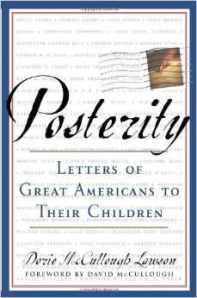Letters give the gift of time

Photo: Nelson Ashberger
I wrote last time about the deliberate intimacy of the written word and how we share it in letters and correspondence.
A wonderful resource, Posterity: Letters of Great Americans to Their Children, from author Dorie McCullough Lawson shares three centuries of correspondence collected from the likes of Harriet Beecher Stowe, Ansel Adams, Jack London, Albert Einstein, Mary Todd Lincoln, Laura Ingalls Wilder and Thomas Edison. In addition to the good counsel they often share, these letters offer an intimate glimpse into families and relationships and represent the truest kind of history — the kind that’s people-based and gives us the most from which to learn.
In a wartime letter written as though penned by the family dog, Groucho Marx not only gave his soldier son plenty to laugh about during a tough time, but was able to express some of his deepest sentiments for his son, too.
Women’s-suffrage activist Elizabeth Cady Stanton wrote that she was “making the path smoother” for her own daughters and everyone else’s. 
Illustrator N.C. Wyeth cautioned Andrew Wyeth: “There’s a real task on our hands, Andy. Modern art critics and their supine followers like the flat and the shallow.” Imagine how those words kept his artist son company in later years.
As historian David McCullough, father of the book’s author, observes so aptly in the book’s foreword, “Often the authors want only to save their children from making the mistakes they have.” Of course, while they can’t accomplish that, such “missives of love,” as he calls them, can at least keep the next generation company and give them heart and encouragement on the path. 
Within the letters our daughter sent us from China, we were able to see the heights and depths of the strong young woman she was becoming. These could be harder to see in crowded family gatherings or busy day-to-day details, when so much of what we “share” and “communicate” with each other involves so little of our truest feelings or best intentions. I remember how moved I was the day she told me that reading our letters, unlike talking with us, was like knowing more of who we really were — even more deeply.
Letters give both the writer and the recipient the opportunity to invest one of the most precious and rarest of resources in a relationship these days — time. You can’t write or read a letter and give your attention to anything else at the same time. It is truly a visit, and one that reminds us that what’s most real about our selves and our relationships absolutely transcends time and place.





